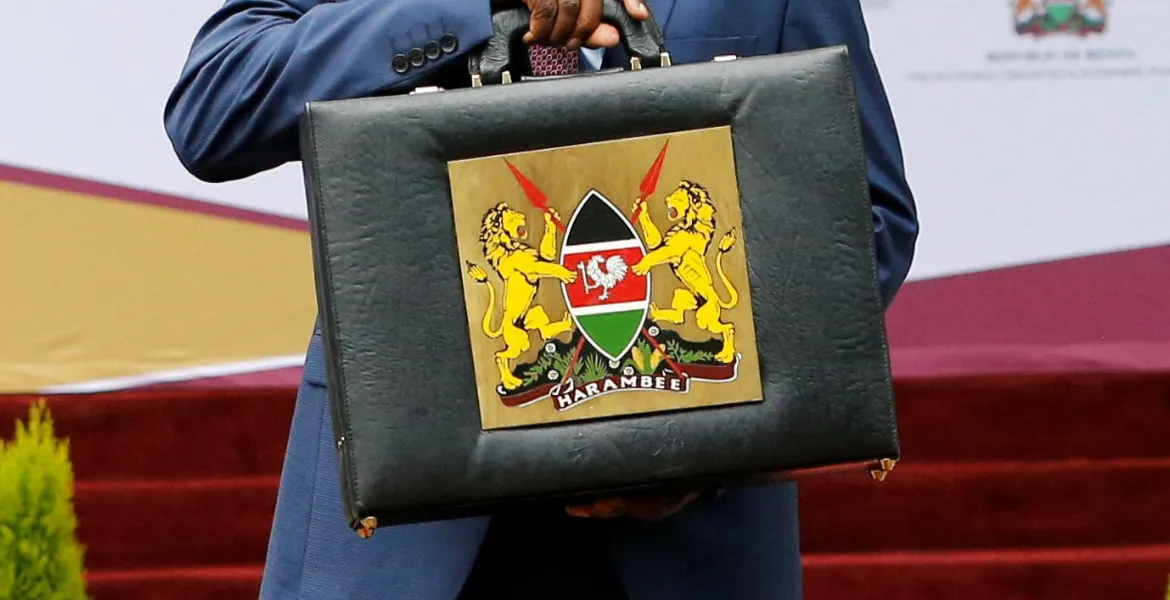Introduction: Striking the Balance Between Revenue and Growth
The Institute of Certified Public Accountants of Kenya (ICPAK) has formally submitted a sweeping set of 39 recommendations on the Finance Bill 2025, urging Parliament to adopt measures that raise revenue without stifling economic growth or overburdening taxpayers. In a presentation on 27 May 2025, ICPAK’s delegation emphasized that tax policy must be both efficient and fair, aligning with Kenya’s Medium-Term Revenue Strategy (MTRS) while safeguarding key sectors such as manufacturing, housing and green energy (People Daily).
Economic Backdrop: Headwinds and Fiscal Pressures
Kenya’s economy has faced mounting challenges in recent years:
- Slowing Growth: Real GDP growth decelerated from 5.7% in 2023 to an estimated 4.7% in 2024, weighed down by climate shocks, the fallout from the 2024 Finance Bill protests and constrained public spending.
- Tax-to-GDP Gap: Despite efforts, Kenya’s tax-to-GDP ratio fell from 15.5% in 2014 to 13.1% in 2020, even after pandemic-era relief measures. By comparison, Rwanda and Burundi collect over 17% of GDP in taxes—placing Kenya in the lower tier among East African Community (EAC) peers.
- Revenue Targets: The Kenya Revenue Authority (KRA) aims to lift tax revenues to KSh 3.3169 trillion (approx. 27% of GDP) in FY 2025/26, up from KSh 2.407 trillion in FY 2023/24—an 11.1% increase that still missed its KSh 2.52 trillion target.
- IMF Advice: The International Monetary Fund has cautioned against heavy reliance on new taxes, recommending that Kenya first rationalize spending and improve tax administration to restore public trust (hrw.org).
ICPAK’s Overarching Principles
In its submission, ICPAK underscores four guiding principles:
- Sustainability: Tax measures must generate stable revenues over the medium term without sharp rate changes.
- Competitiveness: Kenya’s rates should align with global (23.51%) and African (27.28%) averages to attract foreign direct investment (Cliffe Dekker Hofmeyr).
- Equity: The burden must be shared fairly, with targeted relief for low-income earners and key industries.
- Simplicity: Complex rules raise compliance costs and encourage evasion—procedural reforms are essential.
These principles inform their detailed proposals across income tax, value-added tax (VAT), excise duty and tax administration.
Income Tax Reforms: Fueling Investment and Disposable Income
ICPAK’s 15 income-tax recommendations aim to lower Kenya’s headline rates and ease burdens on businesses and workers:
| Proposal | Current Law | ICPAK Recommendation | Rationale |
| Corporate tax | 30% flat | Reduce to 28% | Align with EAC peers; improve investment climate |
| Loss carryforward | 5-year cap | Extend to 15 years; indefinite for investment allowances | Support long-gestation projects and capital-intensive sectors |
| PAYE bands | Top rate 35% | Lower top marginal to 28% | Increase take-home pay; harmonize with Ghana’s 25% top rate |
| Real estate firms | 30% | Retain 15% for firms building 100+ affordable homes | Advance the Bottom-Up Economic Transformation Agenda (BETA) |
| Terminal dues | Taxed | Exempt for dependents of deceased employees | Provide social relief |
By trimming the corporate tax rate to 28%, Kenya would move closer to the African average of 27.28% and well within reach of OECD norms, boosting compliance and cross-border competitiveness (Reuters). Extending loss-carryforward periods to 15 years would particularly benefit manufacturing, agro-processing and clean-energy ventures that require sustained upfront investment.
VAT Reforms: Stimulating Consumption and Simplifying Compliance
Kenya’s 16% VAT generates roughly 35% of total revenues but faces vulnerabilities from refunds backlogs and narrow bases. ICPAK proposes:
- Gradual rate cut: 16% ➔ 15%, with a roadmap to 14% by 2028 to stimulate demand and reduce evasion.
- Targeted exemptions: Preserve zero-rating for specialised hospital equipment, solar/wind energy machinery and vehicle-assembly inputs to support healthcare, green energy and manufacturing.
- WHVAT reform: Eliminate withholding VAT to ease cashflow for exporters and manufacturers burdened by perpetual credits.
- Penalty reduction: Lower the general VAT penalty from KSh 1 million to KSh 100,000 to make fines proportionate and enforceable.
A modest 1‐point rate cut could boost consumption by an estimated 0.3% of GDP, while streamlining WHVAT would unclog the pipeline of KSh 150 billion in stuck credits, according to KRA data (IMF).
Excise Duty Adjustments: Strengthening Local Industries
Excise duties contribute 15% of tax revenues, but certain levies hamper nascent sectors. ICPAK’s 8 excise duty proposals include:
- Digital lenders: Amend the definition of digital credit to include non-deposit-taking microfinance institutions, ensuring a level playing field without stifling fintech innovation.
- Plastics duty: Remove excise fees on locally manufactured plastics and allow duty offsets for packaging inputs—critical for the plastic recycling value chain.
- Alcohol and tobacco: Introduce graduated rates to curb youth uptake while capturing more revenue from premium products.
Tax Administration & Procedural Reforms
Beyond rates, ICPAK stresses that compliance costs and administrative bottlenecks deter voluntary tax participation. Their VAT & income-tax procedure recommendations include:
- E-filing enhancements: Upgrade the iTax portal for improved uptime and user experience, reducing KRA’s customer-service workload by 30%.
- Audit charter: Publish a Taxpayer Rights and Obligations Charter to clarify the audit process, limiting desk audits to 12 months and field audits to 24 months.
- Penalty waivers: Empower the KRA Commissioner to waive penalties and interest in genuine cases of taxpayer error or hardship—a reform effective 1 July 2025.
- Advance Pricing Agreements: Introduce APAs to provide multinationals greater certainty on transfer pricing, encouraging continued investment.
These procedural changes aim to reduce the average time to complete an audit from 18 months to 9 months, aligning Kenya with OECD best practices and improving the country’s Doing Business ranking (World Bank Data).
Sector Spotlight: Manufacturing under Threat
The manufacturing sector—employing 10% of the workforce—expanded just 2.8% in 2024 and now contributes 7.3% of GDP, down from 7.5% the prior year. ICPAK warns that:
- Excise hikes on locally produced plastics could raise input costs by 12%, undermining competitiveness and driving factories to smuggle cheaper imports.
- Higher corporate taxes threaten to stall planned auto-assembly projects, which have already committed over $300 million in capital expenditure under Kenya’s Auto Park initiative.
Stakeholder Reactions: Balancing Optimism and Caution
Business Community
- The Kenya Private Sector Alliance (KEPSA) has broadly welcomed calls to lower corporate rates but urges caution on VAT cuts, warning of possible KSh 40 billion in revenue shortfalls if the rate drops too quickly.
Labour and Civil Society
- The Central Organization of Trade Unions (COTU-K) supports lowering PAYE top rates but calls for better social-security contributions to fund universal healthcare.
- Transparency International Kenya backs procedural reforms and an APA regime to curb transfer-pricing abuses and protect tax bases.
Government
- Treasury Cabinet Secretary Njuguna Ndung’u has signaled openness to trimming the corporate rate but remains cautious on VAT, noting that the MTRS envisages gradual adjustments to avoid destabilizing revenues (IEA Kenya).
Geopolitical Context: Keeping Pace with Regional and Global Trends
Kenya’s reforms must be viewed within a broader economic landscape:
- EAC Integration: Harmonizing rates with EAC partners can facilitate cross-border trade under the Common Market Protocol.
- Global Tax Reform: The OECD’s Two-Pillar Solution on Base Erosion and Profit Shifting (BEPS) requires Kenya to implement a 15% global minimum tax by 2025, further justifying a competitive headline rate.
- Digital Economy: As Kenya advances mobile money and fintech, tax policy must accommodate new business models—e.g., clarifying digital-lender levies to protect both consumers and innovators.
By aligning its Finance Bill with these multilateral frameworks, Kenya can secure trade preferences, investment treaties and development-finance partnerships that hinge on sound fiscal policy.
Conclusion: Seizing the Window for Reform
ICPAK’s comprehensive package offers a blueprint for Kenya to:
- Recover from debt distress: By lowering debt-servicing costs through a stronger growth trajectory and stable revenues.
- Revive private-sector investment: With competitive tax rates that signal a pro-business stance.
- Protect vulnerable groups: Through targeted exemptions and more disposable income via PAYE relief.
- Improve governance: By streamlining procedures and codifying taxpayer rights.
As the National Assembly debates the Finance Bill 2025, lawmakers face a critical choice: pursue aggressive tax hikes that risk repeating last year’s unrest, or adopt balanced reforms that foster sustainable growth and shared prosperity. ICPAK’s proposals, grounded in data and best practice, provide a roadmap to achieve both fiscal and social objectives—ensuring Kenya remains on track to meet its Vision 2030 goals and compete on the global stage.
Ready to take your career to the next level? Join our dynamic courses: ACCA, HESI A2, ATI TEAS 7 , HESI EXIT , NCLEX – RN and NCLEX – PN, Financial Literacy!🌟 Dive into a world of opportunities and empower yourself for success. Explore more at Serrari Ed and start your exciting journey today! ✨
photo source: Google
By: Montel Kamau
Serrari Financial Analyst
29th May, 2025
Article, Financial and News Disclaimer
The Value of a Financial Advisor
While this article offers valuable insights, it is essential to recognize that personal finance can be highly complex and unique to each individual. A financial advisor provides professional expertise and personalized guidance to help you make well-informed decisions tailored to your specific circumstances and goals.
Beyond offering knowledge, a financial advisor serves as a trusted partner to help you stay disciplined, avoid common pitfalls, and remain focused on your long-term objectives. Their perspective and experience can complement your own efforts, enhancing your financial well-being and ensuring a more confident approach to managing your finances.
Disclaimer: This article is for informational purposes only and does not constitute financial advice. Readers are encouraged to consult a licensed financial advisor to obtain guidance specific to their financial situation.
Article and News Disclaimer
The information provided on www.serrarigroup.com is for general informational purposes only. While we strive to keep the information up to date and accurate, we make no representations or warranties of any kind, express or implied, about the completeness, accuracy, reliability, suitability, or availability with respect to the website or the information, products, services, or related graphics contained on the website for any purpose. Any reliance you place on such information is therefore strictly at your own risk.
www.serrarigroup.com is not responsible for any errors or omissions, or for the results obtained from the use of this information. All information on the website is provided on an as-is basis, with no guarantee of completeness, accuracy, timeliness, or of the results obtained from the use of this information, and without warranty of any kind, express or implied, including but not limited to warranties of performance, merchantability, and fitness for a particular purpose.
In no event will www.serrarigroup.com be liable to you or anyone else for any decision made or action taken in reliance on the information provided on the website or for any consequential, special, or similar damages, even if advised of the possibility of such damages.
The articles, news, and information presented on www.serrarigroup.com reflect the opinions of the respective authors and contributors and do not necessarily represent the views of the website or its management. Any views or opinions expressed are solely those of the individual authors and do not represent the website's views or opinions as a whole.
The content on www.serrarigroup.com may include links to external websites, which are provided for convenience and informational purposes only. We have no control over the nature, content, and availability of those sites. The inclusion of any links does not necessarily imply a recommendation or endorsement of the views expressed within them.
Every effort is made to keep the website up and running smoothly. However, www.serrarigroup.com takes no responsibility for, and will not be liable for, the website being temporarily unavailable due to technical issues beyond our control.
Please note that laws, regulations, and information can change rapidly, and we advise you to conduct further research and seek professional advice when necessary.
By using www.serrarigroup.com, you agree to this disclaimer and its terms. If you do not agree with this disclaimer, please do not use the website.
www.serrarigroup.com, reserves the right to update, modify, or remove any part of this disclaimer without prior notice. It is your responsibility to review this disclaimer periodically for changes.
Serrari Group 2025
















